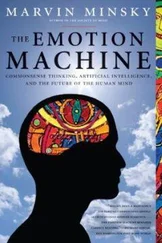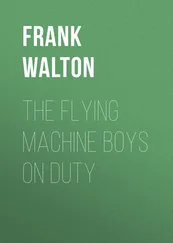Amos is merciless. ‘But succinct; at least it will be if you wish it to be heard in this court.’
The crowd in the galleries around Silas trembles again, sensing conflict.
‘Two days after the occupation, the clinic was burned to the ground. The perpetrators are in custody, and claim they were acting on the orders of this man.’ A stubby finger points at the prophet.
‘And obviously you’ve obtained evidence to corroborate their claim?’
‘I have their sworn testimony.’
‘I’ll take that as a no, shall I?’ The prosecutor opens his mouth, but Glassberg cuts him off. ‘Well, we’ll see in due course, won’t we? Is that it for charges? You mentioned sedition?’
‘When officers attempted forcibly to remove the perpetrators from the clinic, he claimed their authority was invalid, and multiple witnesses heard him instruct his followers to heed the call of a higher authority which he alone can interpret. It is both a blasphemy and a violation of civil law.’
‘More or less the usual then?’
‘Your honour …’ The man adjusts his curled wig in a misguided attempt to assume an air of dignity. ‘Cases like this strike a twin blow at the very fabric of our society. The clinics are vital for the installation and maintenance of citizen comm-plants. Without them, commerce suffers, and law enforcement loses a vital tool. Chaos and ruin threaten. This, I believe, is more than sufficient justification for the charge of terrorism.’
Silas bites back a bark of laughter at the legal hyperbole. There is more than a touch of the absurd in the spectacle. Glassberg’s dignified disdain sets it off perfectly. He sees what’s happening, but can’t help being the straight man in the deadly theatre unfolding around him. He knows what will happen outside the court, as the pantomime of manufactured outrage reproduces itself in earnest on the streets. A man like him cannot see past the fire and blood to the opportunities they bring for anyone possessed of will and imagination. His lean jaw tightens, and his gaze tracks pointedly from the prosecutor to the cameras at the back of the court.
‘Are you finished? I assume that little tirade was the reason we’re all gathered here. I imagine there was enough there for it to have the desired effect?’
Silas grimaces. This is what makes Glassberg an obstacle, for all his plodding predictability. In a sentence he can steal the wind from anyone who tries to play the part of demagogue in his courtroom, and he does it without putting so much as a dent in his reputation for impartiality. The rebuke sends a thrill shivering through the crowd. The prosecutor looks around the room, pretending to gauge the mood while he searches for a rejoinder. He starts to say something, stutters and falls silent. The threat of a contempt charge hangs unspoken in the air.
‘Right, shall we move this along? I’m sure we’d all rather be doing something else.’ Glassberg assumes a breezy businesslike air. ‘I’m throwing out the conspiracy charges and the sedition. There are a hundred lunatics saying the same thing on every street corner in the city, and I fail to see any benefit in turning the city’s prisons into asylums or, indeed, into refugee camps. The charge of criminal damage is, I note, uncontested, so we can dispense with a lot of the formalities.’ He sits up straight and addresses the prisoner in the dock. ‘The accused will pay a fine of one hundred shekels and understand that any further instances of this behaviour will be more severely punished.’
The man in the dock smiles placidly as the bailiffs lead him away to his liberty, quietly certain his fate is the result of divine providence rather than any trivial human agency. His followers at the so-called ‘Mission’ will pay the fine without blinking. This is not their prophet’s first appearance in Amos’s courtroom, nor will it be his last. Nobody wants them in Jerusalem, even the Christians they claim fellowship with scorn them, but still they persist, funded by some foreign fanatic who hopes to earn his own place in heaven by importing religion to the Holy City.
Fury darkens the prosecutor’s face. No doubt he imagines he will exact revenge for this humiliation in the city’s looming elections. The prosecutor’s chair is the traditional stepping stone to the Justice Ministry and the judge’s seat currently occupied by Amos Glassberg, but he is the wrong man in the wrong place. His support from the traditionalists of the Syriac and Orthodox traditions will not be enough. The landscape is changing; new faiths disturb the old balances – in that sense the transparent evangelism of the Mission is no different to the Cult of the Machine: both sweep up human refuse and recycle it, building armies of the grateful. They don’t dare wield their influence openly yet, but it is only a matter of time. Power, once gained, does not go unused. Already, in subtle ways, they force change upon a city that resists it by nature. And so they must endure the painful lessons learned by all the faiths that came before them, lured by the conceptual Jerusalem, and damned by the real.
The foreign churches will burn tonight. Frightened people will start the fires, their fear will spread like the flames, and then they will look for someone to make them feel safe from themselves. The city’s fractured politics have long made it impossible for any one faith to govern, but for the right man, for someone with a vision for Jerusalem as more than a backwater city-state at the edge of the developed world, the cracks in the old order offer a chance to sow the seeds of a new era.
Something twists the night air around Clementine, dragging it through the narrow channels of the Old City’s streets, raising tiny dust devils of grime that disappear in the dark. A storm blowing in from the desert? No, something else. She follows the flow, drawn by the sense of something unfolding, until the bark of human voices reaches her. The shouts sound faint and distant, but it’s an illusion spawned by the wind blowing away from her; nothing is ever further than a stone’s throw in the clogged vessels of Jerusalem’s ancient heart.
She hears the crackle like snapping twigs before she sees the glow, a nimbus of orange floating above the rooftops like a second dawn: fire, sucking the air from the alleys, gorging on the tainted oxygen. The calculation of its position comes to her unbidden, and panic sours the back of her throat; the flames are coming from the Mission. She runs easily, slipping through pools of darkness between scattered bubbles of yellow sodium light, the movement a liberation she could never enjoy in daylight hours.
A small crowd lines the edges of the square around the Mission, watching the chapel roof burn as if it were a sacrificial pyre. A few figures, some robed, some ragged, scurry around the base of the white walls, leaning ladders against the gables the fire hasn’t touched yet, running thin hoses to grime-encrusted hydrants, relics of another age. At the centre of it, she recognizes Hilda’s bulk silhouetted against the flames: still, solid, a bulwark of calm amidst the panic surrounding her.
‘What can I do?’
The older woman jerks around at the sound of her voice. Her gaze sweeps up and down Clementine’s foreign clothes, the question of where she has been unspoken.
‘It looks like it’s just the roof so far. If we can stop it spreading, we can still save the Mission.’
‘What happened?’
‘Later, Clementine. We’ll talk.’ Her voice is stern, but unthreatening. The anger in it is directed elsewhere. ‘Get to one of the ladders.’
She follows Hilda’s pointing finger to a patch of white wall already darkened with soot. Two ladders lean against it at either side of the patch of blazing roof. One wobbles dangerously as a man bearing a thin green hose climbs to the top. She clutches it with both hands, but still it totters with every step the reluctant firefighter takes, threatening to slip away from its two tiny points of contact with the cobbled ground. As she leans her body against it, his movement vibrates through the quivering wood and into her, her entire bulk still insufficient to prevent the ladder’s metal feet scraping against the stone.
Читать дальше











